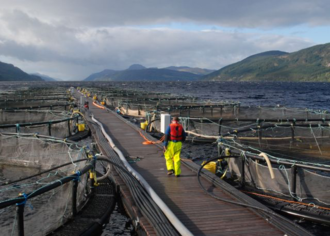-
Protect everyone during the coronavirus crisisThousands of people are in dire circumstances after being deprived of most public funds since the coronavirus outbreak because of strict visa restrictions. Under current rules, people here on short term visas are subjected to the “no recourse to public funds” policy, meaning that they are prevented from accessing many benefits, such as Universal Credit. Councils are prevented from giving them certain help, including access to housing. This harsh rule is leaving thousands of families really struggling to survive during the coronavirus pandemic. We’re calling on the Home Secretary, the UK Work and Pensions Secretary and the government as a whole to scrap the “no recourse for public funds” status for migrants during Covid-19.81,080 of 100,000 Signatures
-
Save Spire FMWe are living in a time when coming together as local community is more important than ever before and Spire FM has been at the heart of our local community. Bauer Media will be combining Spire FM with stations from Blackpool to Norwich and Swansea as Greatest Hits Radio. Although there might still be some local news, that means no more local voices or businesses on War of the Works or Ring-a-ding-a-donut, no more local schools singing on the Countdown to Christmas and no local presenters living in our communities and understanding issues from Novichok to gridlock getting out of Tescos in Southampton Road. https://www.theguardian.com/media/2020/may/27/local-radio-regional-stations-england-bauer-rebranding-national-network3,357 of 4,000 SignaturesCreated by Nick Baker
-
Update the Opticians Act or introduce a law to include a minimum 45 minutes for all eye examinationsMany Optician practices across the UK carry out each eye examination at an average time of 20 minutes per patient or a staggering 10 minutes in some cases. These are unacceptable time scales and they place patients in danger as missed pathology can lead to serious eye disease and can sometimes lead to other serious health conditions. The practitioners who carry out these eye exams are also putting their careers at risk by agreeing to work to these time scales. Missed pathology will almost certainly lead to fitness to practise (FTP) hearings with the GOC, and the potential for erasure from the optician’s register is a real concern for all practitioners. The GOC’s overarching objective is the protection of the public (Opticians Act Section 1). However, they have not yet addressed this time scale issue. The GOC Registrant Survey 2016 states: “One area identified by participants as having an effect on patients was the length of the sight test. Some participants explained that employers and businesses can put pressure on registrants to conduct as many eye tests as they can in a day. This can result in registrants not being able to always spend enough time with patients. Participants also mentioned that they were under pressure to achieve certain “conversion rate” targets (i.e. to ensure that an eye test with a patient leads to the patient then buying glasses or contact lenses within the store).” We also believe that The College of Optometrists, the Association of Optometrists (AOP) and the Association of British Dispensing Opticians (ABDO) have collectively failed to provide clear and concise guidelines on this matter. Many people working within the industry feel that the answers possibly lie with the major High Street Opticians and their influence on all the bodies mentioned above, which surprisingly includes the governing body (GOC). The vast majority of these representative bodies, if not all, have at least one board member affiliated with a national high street optician chain. This is seen by many as a conflict of interest. A recurring question amongst practitioners is, how are these board members influencing these representative bodies behind closed doors? Every high street optical chain is reliant on high patient volume within their business models. Reduced exam times and the absence of law in this area, means more patients can be seen in each clinic. Which is great for business, profits and turnover, but not so great for the quality of patient care and it’s certainly not beneficial for the well-being of the practitioners that carry out the eye exams. Unfortunately many practitioners who work within these high street businesses are ‘performance managed’ to work to these time scales. Failure to adhere to the current time scales leads to practitioners being ‘performance managed’ out of the businesses. This unacceptable behaviour highlights the profits before patients syndrome, which has been like a cancer that’s spread through the profession over the years. This conveyor belt system leads the public to view practitioners in this field as glasses sellers or salesmen. Whereas the truth is far from this view. A Journal of Optometry study (https://www.ncbi.nlm.nih.gov/pmc/articles/PMC4911451/) found that Optometrists working in Multiple Optician chains were twice as likely to refer false positives to the Hospital Eye Service (HES) compared to Independent Optician practices. When you factor in the shortage of Ophthalmologists (Centre for Workforce Intelligence, 2014) working in the HES. False positive referrals can have a significant impact on the HES. The same study went on to claim; “Myint and colleagues found that lack of TIME to repeat measurements, or remuneration for doing such, as the most commonly reported barriers to effective glaucoma detection in the UK”. The study also found that after the introduction of the new Scottish NHS GOS contract which allows for longer exam times, “there was a significant reduction in false positive referrals and a significant increase in true positive referrals.” An example of the effect this can have on the HES: (https://www.aop.org.uk/ot/professional-support/health-services/2019/11/11/glaucoma-patient-who-went-blind-receives-three-point-two-million-pound-compensation) The AOP’s own “Optometrists Futures Survey” from October 2018 (section 7.3.2) clearly highlights the need for changes to increase the exam times. Almost two years have passed and this point has yet to be addressed by the AOP. The Optical Workforce Survey (2015), Lead by The College of Optometry, states the following regarding the pressures on the HES: “Since 2004, the Department of Health (DH) has been trying to encourage the delivery of more routine and minor emergency eye care outside hospital settings in community optical practices. The aim is to free up hospital capacity to cope with increasing demand from both the ageing population and new technologies such as treatments for wet age related macular degeneration (The King’s Fund, 2009).” This highlights the urgent need to reduce false positive referrals caused by the commercial pressures which impose inadequate examination times on practitioners. The current pandemic also highlights the importance of longer eye exam times. The use of PPE, disinfection and social distancing measures will require added time to carry out eye exams once the suspension on routine sight testing has been lifted. There is also the lingering prospect of potential monopolies being formed, (https://www.financierworldwide.com/essilorluxottica-and-grandvision-agree-8bn-merger#.Xs-8WxbTWEc). This will no doubt effect patient safety as the aim of increasing commercial revenue will take precedence. By signing this petition you will help safeguard patients and practitioners as well as highlight the points made in this petition to the government.652 of 800 SignaturesCreated by Raz Yakub
-
Lift The Ban On Outdoor Alcohol ConsumptionWith social institutions likely being closed for the remainder of the year we should be able to drink in public areas, such as parks, which allow for individuals to socialise while still adhering to distancing rules.537 of 600 SignaturesCreated by Gary Mitchell
-
Stop Toxic Salmon Farm Chemicals Polluting Scottish LochsMore than 22 tonnes of formaldehyde, which causes cancer and is used as an embalming fluid, were poured into cages to disinfect salmon in Loch Ness, Loch Sheil, Loch Lochy and seven other lochs over nine months in 2019. Residents of Lochaber and elsewhere in the Highlands are rightly worried as many of these lochs feed public water supplies. Formaldehyde is a colourless, strong-smelling gas used in a liquid solution called formalin to treat farmed salmon in freshwater lochs. SEPA, which authorises its use, says that uncontrolled releases “have the potential to cause significant harm to the environment”. The chemical was classified as a human carcinogen by the UK government in 2016. New data released by Sepa disclosed that a total 22.4 tonnes of formaldehyde were used by 12 fish farms on 29 occasions between April and December 2019. Seven companies were given permission to apply the chemical, with the vast majority – 19.6 tonnes – being used by Norwegian-owned Mowi, formerly known as Marine Harvest. At one loch – Loch Lochy, near Spean Bridge – Mowi used 11 tonnes of formaldehyde – far more than elsewhere. The company poured 3.2 tonnes into fish cages at nearby Loch Arkaig, 2.8 tonnes at Loch Sheil in Glenfinnan and 2.2 tones at Camas na Mult on Loch Ness. https://bit.ly/fish_farm_pesticide10,438 of 15,000 SignaturesCreated by Healthy Scotland
-
Don’t lift the ban on evictions until renters are protectedMillions of people, who have struggled to pay rent due to coronavirus, could soon be forced out of their home - because the government's temporary ban on evictions is set to end on the 23rd August. And as it stands there are no laws or proper protections in place to stop landlords evicting those of us who have lost our jobs and struggled to pay rent during the crisis. To fix this mess, influential MPs and housing experts are calling on the government to give judges the power to protect renters from being evicted because of arrears caused by coronavirus. Only then can the government lift the ban on evictions. We need to send the government a clear message: Make sure renters are properly protected before lifting the ban on evictions. So that no one is forced from their home due to the coronavirus crisis. A huge petition, signed by hundreds and thousands of people across the country, is the first step38,338 of 40,000 SignaturesCreated by Linda Baharier
-
A Common Scandal: How Wandsworth Puts Public Land In Private HandsWandsworth Borough Council failed to adequately inform and consult the public of this development. It sent out just 34 letters to local residents, despite a thousand registering their concern to a similar plan in 2008. It omitted to mention the land will become the base for a football club, who play at a semi-professional level and have a total of 28 teams. The chairman of the planning committee which considered the application is also a director of Enable, the organisation responsible for the management of leisure and sports services in Wandsworth. The chairman closed down debate at the meeting; allowing a supportive letter from the football club to be read out, but rejecting a short submission on behalf of almost 7,000 local residents against the development and failing to refer to an unprecedented 1,000 formal objections from the public. The committee failed to call for a traffic and parking impact report, despite the issue being of significant concern in the area, where there is no dedicated parking. Residents were not informed that a community boxing club which was expected to be upgraded as part of the development would instead lose space and may now face closure. REJECT this application: it is not supported by the public. Planning applications must not only be fair, they must be seen to be fair, especially when they relate to common land.2,140 of 3,000 SignaturesCreated by Ben Jackson
-
TORFAEN COUNCIL, STOP USING GLYPHOSATEGlyphosate-based herbicides such as RoundUp pose a real risk to the public, our environment and workers. Glyphosate has been banned in Holland, Denmark, Sweden and France and by some Councils around the UK such as Trafford, Brighton, Bristol and Croydon. B & Q are ceasing sale of Round-Up following links to cancer in the US. Roundup kills beneficial insects. It has been proven to cause mortality of species including bees, predatory mites, lacewings, ladybirds and predatory beetles. Argentinian studies suggest that glyphosate use leads to a decline in honeybee activity. The demise of the monarch butterfly population in New York has been blamed on glyphosate. Glyphosate in soil takes approx 140 days to break down to half its toxicity and will continue to be taken up by plants from the soil for 2 years and longer. It’s toxic to earthworms and inhibits mycorrhizal fungi. Mycorrhizal fungi are essential for tree health, collecting nutrients and water to feed their host plant and protecting tree roots from harmful fungi and root rot diseases. Research on Cancer (IARC) concluded that it was “probably carcinogenic”. A court case against Monsanto was won by a man who developed cancer after using Roundup. He was awarded $289 million in damages. Other councils now use eco-friendly alternatives such as non-toxic Foamstream. Methods such as Mesh-Tech are now also available to combat Japanese Knotweed. This petition is supported by Independent (non group) Cllrs Elizabeth Haynes, Dave Thomas, Alan Slade, Jason O'Connell & Louise Shepphard.226 of 300 SignaturesCreated by Elizabeth Haynes
-
£500 grant to all social and childcare workers In WalesSocial and childcare workers have worked tirelessly during the Covid Outbreak. Care homes have been a significant source of infection, with many social care staff not going home. Some live in caravans and some risk their families contracting the virus. The majority of Social Care staff are on National Minimum Wage. The WELSH government made the statement, they should stick to it. Many professionals would have been unable to go to work without childcare staff and for this reason, the payment should extend to them too.139 of 200 SignaturesCreated by Matthew Bailey
-
WSCC Pensions to divest from fossil fuels and invest in sustainable energyWe are asking WSCC council pension funds to commit to divest all their funds from fossil fuel companies. Divestment is the opposite of investment – it means getting rid of stocks, bonds or investment funds that are unethical. More than 50 pension funds globally have now made divestment commitments, moving millions out of the fossil fuel industry. However, despite years of campaigning by local people and motions passed by both Adur & Worthing Borough Councils urging them to divest (https://worthingandadurchamber.co.uk/news-blog/8638924) WSCC pensions will not budge. The West Sussex Local Government Pension Fund, currently responsible for the pension benefits of thousands of us, continues to invest millions in fossil fuel companies. In December 2015 the UK signed up to the Paris Agreement. One of the main aims was to limit global warming to under 2 degrees C. The overriding cause of climate change is CO2 gas emitted from burning fossil fuels (coal, oil and gas). Only 20% of present reserves of fossil fuels can be burnt if we are to keep to the target set in Paris. However, companies such as Exxon, Shell, BP continue to extract existing reserves and pour millions into new projects. The scientific consensus tells us that if we continue on our current course the earth will heat to a level which is beyond that required to sustain life. Heatwaves and wildfires, in the UK and globally, plus the accelerating loss of biodiversity, demonstrate that climate change is already here and is causing the deaths and displacement of millions of people worldwide. David Attenborough said, “What humans do over the next 50 years will determine the fate of all life on the planet.” Please sign the petition to urge WSCC Pensions to divest from Fossil Fuels. [The fossil fuel portfolio could be easily reinvested in green alternatives and get better returns]. (https://www.divest.org.uk/councils/) More: In the UK there are over 30 divestment campaigns targeting local councils and the pension funds they manage. Find more out about the campaign here. https://gofossilfree.org/uk/local-government-guide/ New Government proposals, published on June 18th 2018, are designed to give managers of Britain’s workplace pension schemes new powers to dump shares in oil, gas and coal companies in favour of long-term investment in green and “social impact” opportunities. Pension fund trustees now should have more confidence to divest from fossil fuels and put their cash in green alternatives. As a member of the West Sussex Pension Scheme I urge you to sign our petition to request WSCC to rapidly divest from this industry and invest in technologies and solutions that make a positive contribution to the future of life on earth. Local government Pension Funds are failing to protect themselves from the financial risk of climate. These are the findings of a report in November 2018 (https://cdn.friendsoftheearth.uk/sites/default/files/downloads/Risky-Business-LG-Pension-Funds-Climate-Crisis.pdf) https://gofossilfree.org/divestment/what-is-fossil-fuel-divestment/ https://www.theguardian.com/public-leaders-network/2017/nov/13/southwark-council -pension-fund-divesting-12bn-from-fossil-fuels https://www.unison.org.uk/content/uploads/2018/01/Divest-from-carbon-campaign.pdf Campaign supported by WorthingCAN, XR Worthing, XR Chichester, XR Shoreham, XR Horsham and XR Arun Valley.384 of 400 SignaturesCreated by Amberlouise Everitt
-
Don't make diabetics the new care home crisisCurrent medical data from a significant NHS England study shows that diabetics, especially Type 1 diabetes which is not directly related to obesity, are at significantly increased risk of dying from Covid 19 (more than 3 times higher than a non-diabetic for Type 1, and more than 2 times higher for Type 2). The risk is such that the leading diabetes charity Diabetes UK is calling for the government to ensure employers either continue to furlough diabetics or allow them to work from home even with the easing of lockdown restrictions. This plea has been ignored, and so thousands of diabetics will be forced back to work and to a massively increased risk of death. It is a blatant disregard for their own official medical data and for human life. My husband is a Type 1 diabetic and has been for over thirty years, very rarely missing a days work and contributing hugely to his workplace - I do not want to see him sent to his death because the government refuse to acknowledge the facts and put appropriate shielding advice in place.168 of 200 SignaturesCreated by Helen Compton
-
Better Broadband for BallyroneyIn the last 2 months, since 'Corona virus Lockdown' began, it has become apparent that broadband provision in the Ballyroney area is extremely poor. Ballyroney is a rural area. Broadband speed is low (often less than 2 Mb/s). Home working is difficult, local businesses have difficulty operating, children have difficulty accessing online learning and people have difficulty accessing online services such as shopping, banking and streaming services.163 of 200 SignaturesCreated by Trevor Fisher
Hello! We use cookies to improve your experience by providing insights into how the site is being used. Find out more.





.jpg)






